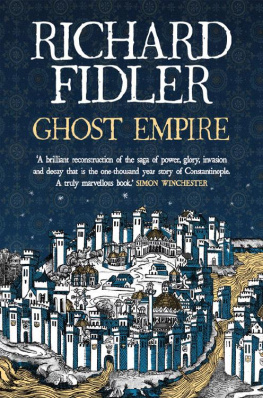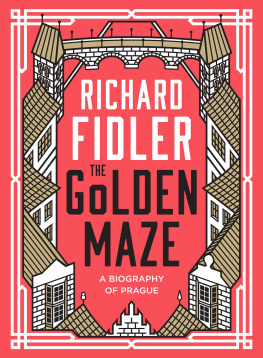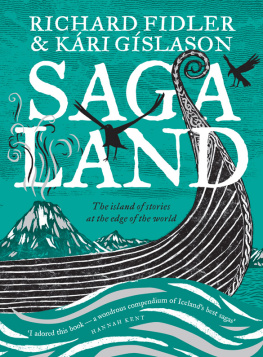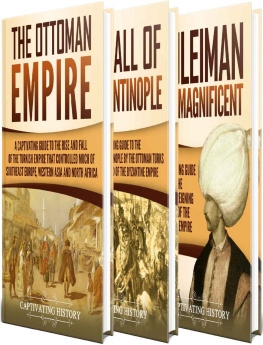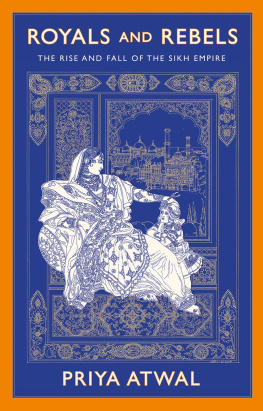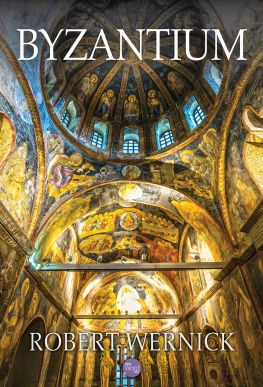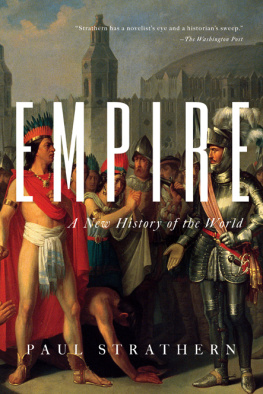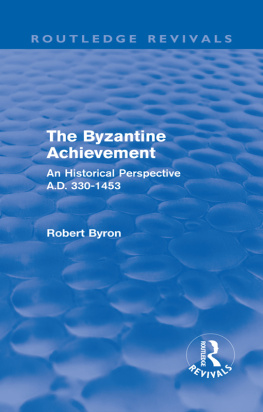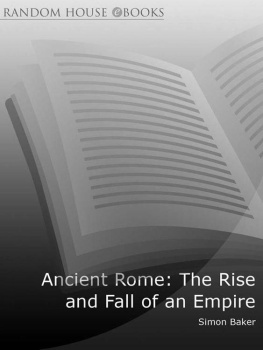I would like to thank my wife Khym and daughter Emma for their patience with a heavily distracted father and husband; Kri Gslason, who at times had a better idea of what this book should be than I did; the extraordinarily erudite Scott Stephens, editor of the ABCs Religion & Ethics online portal for his insights into early Christian history and theology; Pam OBrien and Elizabeth Troyeur for their sound advice and warm encouragement; Brigitta Doyle, Lachlan McLaine, Foong Ling Kong and the people at ABC Books and HarperCollins for their editorial wisdom and guidance, and for engaging so enthusiastically with the idea; the great Liz Gilbert, who knows how to write a book for a single person that everyone wants to read; Simon Winchester, whose relentless curiosity has propelled him to just about all the strange and wonderful places on and under the face of the earth, for his kind words and for his beautiful books; and the State Library of Queensland, so surprisingly well-endowed with otherwise difficult-to-locate texts of Byzantine history. And my deepest thanks to my son Joe, who lay back on the couch listening as I read each passage to him, and who told me everything I needed to know.
I LEARNT NOTHING about Byzantium in school. For a long while all I had were images: flashes of lapis lazuli, golden mosaic tiles, gloomy icons. Byzantium was like an undiscovered continent that I planned to get around to exploring one day. My first encounter with the Romans of Constantinople came in my mid-twenties, when I bought the first of John Julius Norwichs three-volume history of Byzantium. I can recall thinking, as I plunged into the spectacularly colourful thousand-year story, why have I not heard about this before? Why dont more people know about this? Ive heard my friends, after Ive regaled them with some of the tales that follow in this book, ask the same question.
Following the thread of Byzantine history, I arrived at the tale of the Fourth Crusade and the sack of Constantinople by the Crusaders in 1204, which was, surely, one of the greatest debacles in the history of the world: a perfect storm of bad planning, low cunning and greed masked as high principle. The story was so rich, I wondered if it could possibly be true. Fortunately we have no shortage of firsthand narratives. Some of them are unintentionally and blackly funny, written by earnest Crusader knights who twist themselves into some very awkward moral contortions to justify the taking of something that does not belong to them, and the desecration of the most beautiful city they had ever seen.
One of those French knights, Geoffrey de Villehardouin, wrote a vivid account of his voyage to Constantinople on that infamous Crusade, the greatest adventure of his life. At the end, Villehardouin describes how, after three days of looting, the Crusaders agreed to pool the plundered wealth of Constantinople and divide it among themselves. As I read this I pictured the Frankish and Venetian soldiers coming and going, depositing barrowloads and sackfuls of treasure into glittering heaps, enough to fill three churches. Villehardouin describes his astonishment in such a way you can almost feel the pen trembling in his hand:
The booty gained was so great that none could tell you the end of it: gold and silver, and vessels and precious stones, and samite, and cloth of silk, and robes fair and grey, and ermine, and every choicest thing found upon the earth... Never, since the world was created, had so much booty been won in any city.
I have often felt like one of those Crusaders, staring open-mouthed at this treasure heap of stories from the lost world of Constantinople. Professional historians approach such stories with great caution, knowing there will certainly be many fake baubles in the pile. Some accounts will be almost entirely untrue. All will be somewhat distorted according to the prejudices of the author and the political requirements of the moment. Different accounts must be weighed against each other, as well as the documentary evidence and the archaeological record. Sometimes the surviving records are scant and confusing.
Historians are also obliged to discard supernatural explanations for natural phenomena, which is difficult here, because the people of Constantinople were quick to see the hand of God or an angel or a demon in almost everything that happened to them. A modern reader might be inclined to attribute the victory against the Arabs siege of 718 to Roman technological ingenuity, the brilliant deployment of Greek fire and the cunning exploitation of their complex network of land walls. But in their own accounts they were eager to credit the defeat of the Saracens to the divine intercession of the Virgin Mary, whose presence was seen hovering over the city walls.
The Dutch historian Johan Huizinga wrote of the extreme excitability of the medieval soul. Tales of angels and devils intruding into the lives of everyday people were commonplace in Constantinople. The line between the physical and the metaphysical was blurry, if it existed at all. Demons, goblins and witches were as real as the house next door. Gods will could be discerned from the clouds in the sky, and the Devils presence could be sensed within a raking shadow in the street, in the maw of a rabid dog or within the psychotic words of a madman.
As someone who is more of a history enthusiast than an historian, I chose to take some of these stories at face value, to place myself in the thought-worlds of the medieval men and women who saw a kind of cosmic resonance in everything around them. Their myths and phantasms tell something of their obsessions, anxieties and secret longings.
Myth and fabrication are often intertwined with the concrete and the real. There are wild stories attached to real people, like the insufferably virtuous St Irene, the floating nun. Theres the story of Theodora, the bear-keepers daughter turned prostitute and comedian, who became a powerful empress. Our understanding of her has been somewhat skewed by a secret history written by Procopius, Justinians bitchy court historian, who wrote at length, and in great detail, about her participation in preposterous and lurid public sex acts. Roman histories often portray talented and powerful women as whores and poisoners. Are the stories of Theodora an exaggeration or a slanderous lie? Could they possibly be true? We dont know.
There are stories surrounding world-transformative figures like Constantine the Great, who became a Christian, it was said, after receiving an electrifying vision on the eve of battle. Should we interpret that as a dream, or a vague apprehension or a psychotic episode, or should we discard the whole story as a convenient fabrication? And what are we to make of emperors with exotic nicknames such as Justinian the Slit-Nose, a man cruelly disfigured by a soldiers knife, and Constantine V, known to history as Constantine the Shit-Named, after an unpleasant accident at his christening where he allegedly befouled the baptismal font?
Some of the most improbable and fabulous tales are tangibly truthful, woven into the fabric of the city and available for all to see: the construction of the Hagia Sophia, the most beautiful church in the world, and the mighty Theodosian Walls, the massive land fortifications that sealed the city for a thousand years. These are places we can see and touch today. If we had nothing but an accurate written description of the Hagia Sophia to go on, we might easily think it was little more than Christian propaganda, or even a myth, like the Tower of Babel. But there it is, still squatting in the ancient heart of Istanbul, as real as the Pyramids or the Sydney Opera House.
Its fair to assume that if a story seems too good to be true, then it probably isnt. Ongoing historical research sometimes requires us to accept that certain events, no matter how compellingly told, simply could not have happened, or were written by impostors. Sometimes I have chosen to tell the story anyway, but have noted its false provenance. On the other hand, research can transform a wildly improbable tale into something altogether more plausible: in 1993, a NASA scientist came forward with new research that offers a compelling explanation for the strange phenomena witnessed in Constantinople in the week before its fall in 1453.

